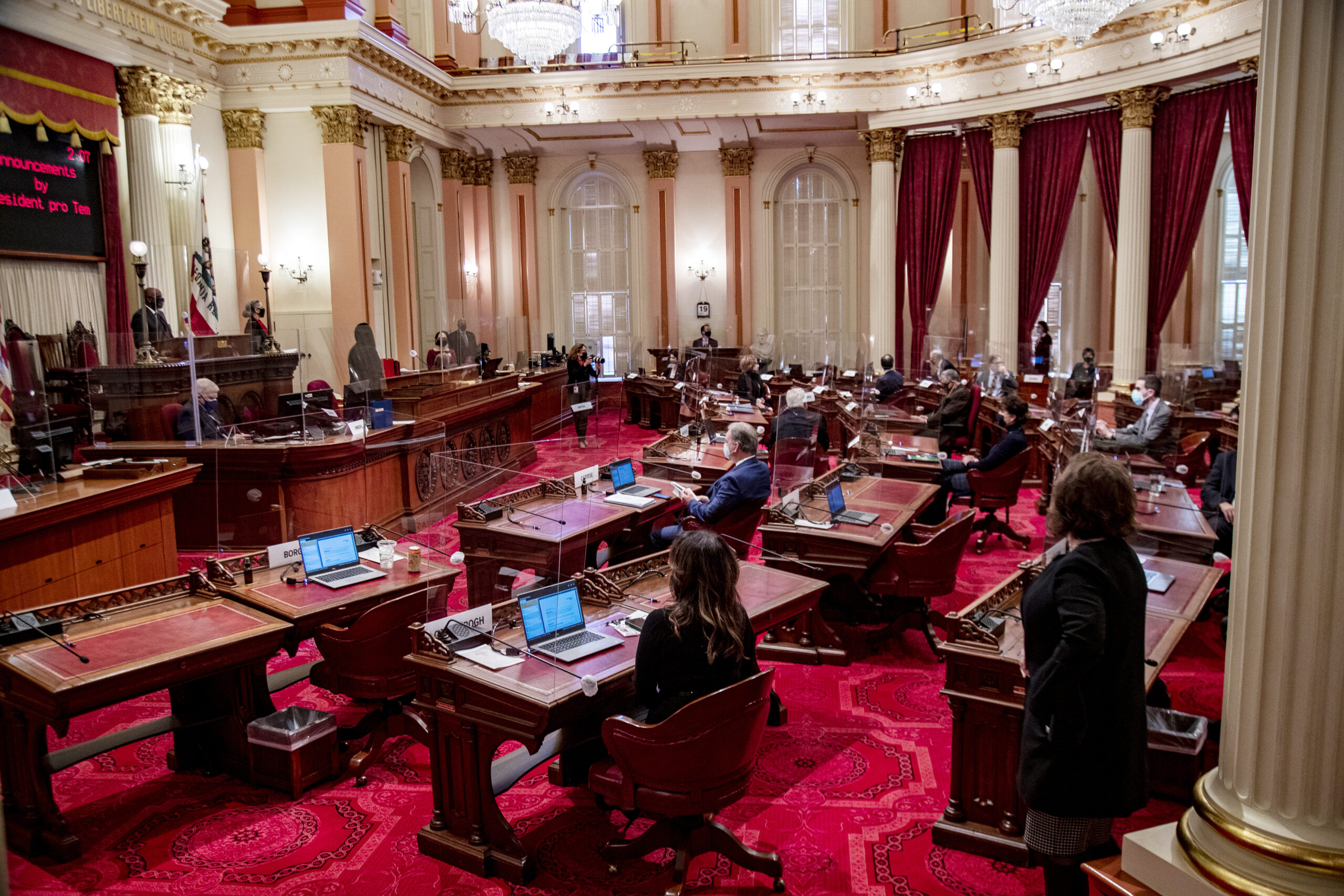Now that California’s legislative session is coming to an end, it’s time to comb through the remains.
In what is a twice-annual tradition for California lawmakers, hundreds of bills go through the Assembly or Senate Appropriations committees in what’s called the Suspense File process.
Every bill with an estimated fiscal impact of $150,000 or greater is routed to the committees for approval. No public hearing is held on the votes, which are conducted behind closed doors. That means it’s impossible to tell who supported the legislation or why it was killed.
At a subsequent public hearing, legislators run through the results in a rapid-fire style, with the respective chairs of the committees reading out the bill and announcing whether it moves forward or is held, effectively putting the legislation on ice for the session.
We went through the roughly 200 bills that were killed this cycle to find 10 with major implications for San Francisco. Time will tell which bills will come back, and when.
Senate:
SB 917 Seamless Transit Transformation Act
Introduced by state Sen. Josh Becker, the bill would have required the Metropolitan Transportation Committee—the Bay Area’s regional transportation planning body—to develop and adopt a plan for a connected transit system, including standardized transit mapping and maintenance and funding strategies.
SB 234 Transition Aged Youth Housing Program
Introduced by state Sen. Scott Wiener, this bill would have established a program under the California Interagency Council on Homelessness meant to create housing for homeless and foster youth under 26 years old who have been removed from their homes or are experiencing homelessness.
SB 1427 Homeless and Mental Health Court Grants
Introduced by state Sen. Rosilicie Ochoa Bogh, the bill would have created grant programs to provide funding to counties like San Francisco to expand homeless courts and mental health courts and to fund programs aimed at reducing homelessness among inmates released from custody.
SB 1293 Cannabis Equity Tax Credit
Introduced by state Sen. Stephen Bradford, the bill would have provided a $10,000 tax credit until December 2027 for a cannabis equity applicant or licensee eligible for a specified fee waiver and deferral program administered by the Department of Cannabis Control.
SB 602 Review of Conservatorships
Introduced by state Sen. John Laird, the bill would have impacted state policy around conservatorships and require conservators to file a care plan for a conservatee within 60 days of appointment and within 30 days before a hearing to determine the continuation or termination of an existing conservatorship. It would authorize the court to impose a civil penalty of up to $1,000 for the failure to submit a plan.
Assembly:
AB 2656 Housing Accountability Act
This bill, authored by Assemblymember Phil Ting, who represents parts of San Francisco, would have required local agencies to issue exemptions to the California Environmental Quality Act or approve environmental documents wherever eligible in urban areas for projects 15 or more units, making it illegal under state housing laws to not do this.
AB 2408 Social Media Platform: child users: addiction.
The aim of this legislation, introduced by Assemblymembers Jordan Cunningham and Buffy Wicks, was to allow the state and county to bring lawsuits against social media companies for creating or using features that make their products addictive to kids.
AB 2186 Housing Cost Reduction Incentive Program
This bill, introduced by Assemblymembers Tim Grayson, Sharon Quirk-Silva and Buffy Wicks, would have established a program to reimburse cities and counties for half of the state development fees they normally have to pay on housing to bring down costs.
AB 2768 Mental Health and Substance Use Disorders: database of facilities.
Introduced by Assemblymember Marie Waldron, the bill would have required the state’s health and human services agency to set up a committee to study creating a comprehensive online database of available beds and treatment centers for mental health and substance abuse to help direct resources and people in need.
AB 1602 Student, Faculty, and Staff Housing: California Student Housing Revolving Loan Fund Act of 2022.
Despite more than a billion dollars in Gov. Gavin Newsom’s budget for loans for public colleges and universities to build housing, the bill that would have regulated how that money is spent, introduced by a long list of assemblymembers, failed to get anywhere this year.
